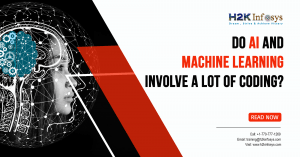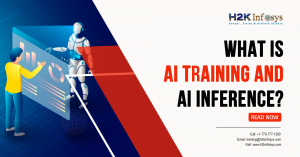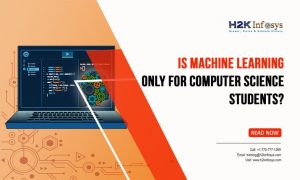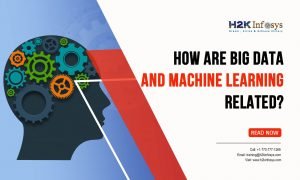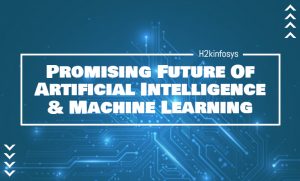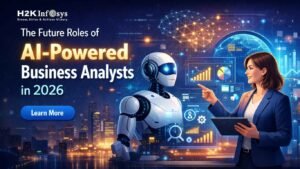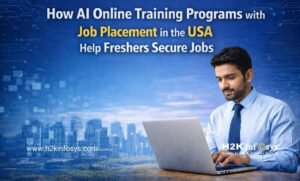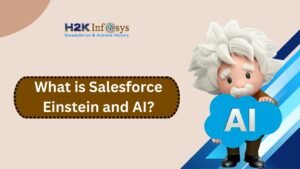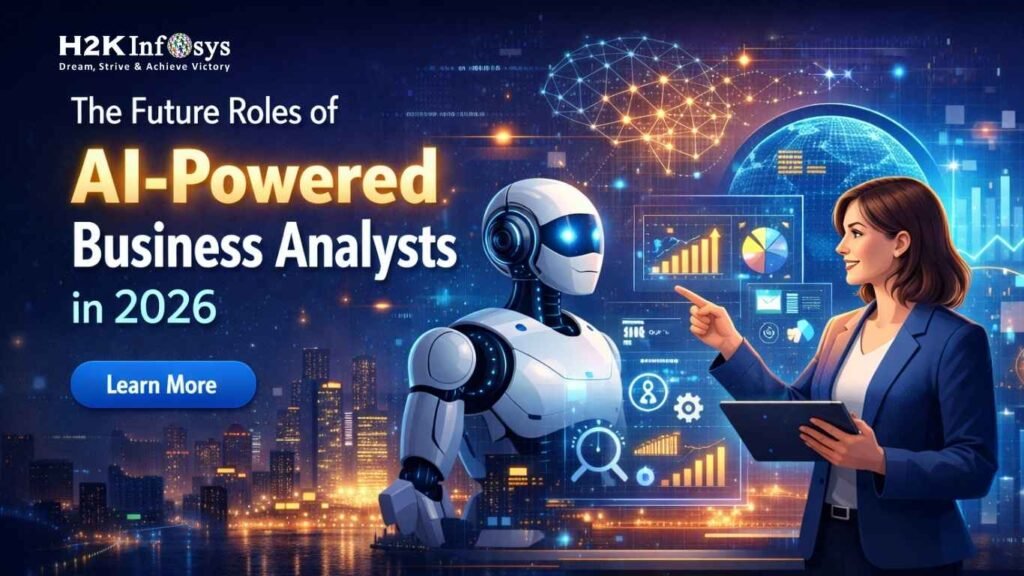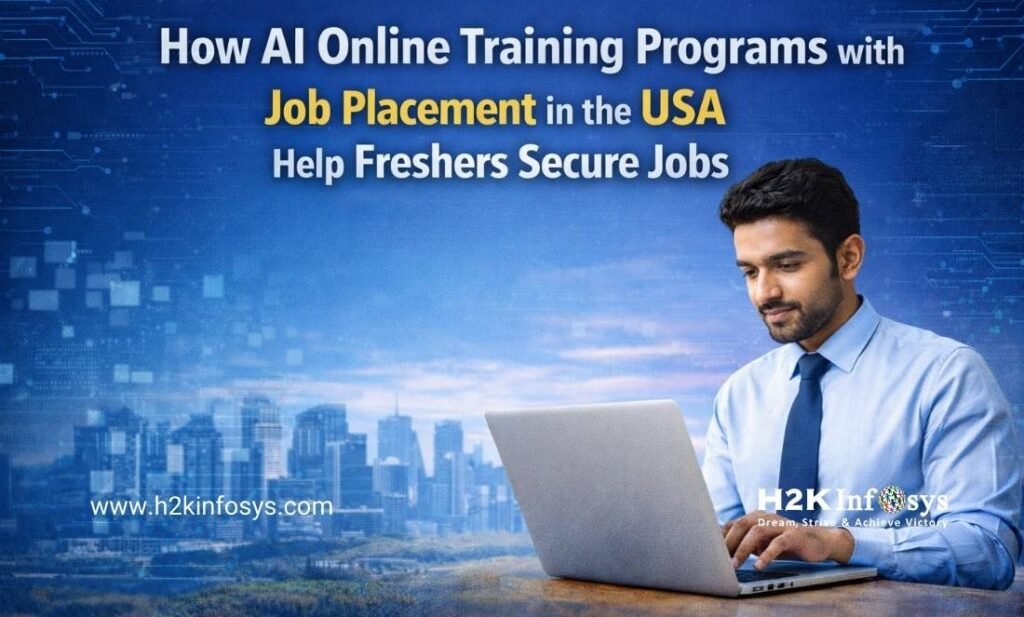In today’s tech conversations, Artificial Intelligence (AI) and Machine Learning (ML) are two of the most discussed terms. Many people use them interchangeably, but while they are related, they are not the same thing. AI is the broad science of creating machines that can mimic human intelligence, while ML is a subset of AI focused on learning from data.
If you are considering an Artificial Intelligence Course Online or planning to pursue an AI course certification, understanding the difference between AI and ML is essential. This clarity not only helps in choosing the right learning path but also ensures that your skills match industry demands.
What Is Artificial Intelligence?
Artificial Intelligence is the field of computer science that focuses on creating systems capable of performing tasks that would normally require human intelligence. This includes activities like decision-making, speech recognition, problem-solving, and natural language processing.
Key features of AI:
- Ability to simulate human reasoning and decision-making
- Works with structured and unstructured data
- Can use predefined rules or learning-based methods
- Supports automation in various industries
Real-world examples of AI:
- Virtual assistants that understand voice commands
- Smart recommendation engines in streaming platforms
- AI-based chatbots for customer service
- Self-driving car navigation systems
When you join an Artificial intelligence certification online, you learn how to design, implement, and optimize such systems using programming, algorithms, and datasets.
What Is Machine Learning?
Machine Learning is a subset of AI that enables systems to automatically learn and improve from experience without explicit programming. Instead of relying solely on predefined rules, ML models use data to identify patterns and make predictions.
Key features of ML:
- Learns from historical data
- Improves accuracy over time
- Works with large datasets for pattern detection
- Commonly used for prediction and classification tasks
Real-world examples of ML:
- Predicting stock market trends
- Email spam filtering
- Personalized marketing recommendations
- Fraud detection in banking
An AI course certification often includes ML modules because ML is one of the most in-demand AI skills in the job market.
AI vs ML: The Core Difference

- AI: The bigger concept of machines simulating human intelligence in various ways, including rule-based systems and deep learning.
- ML: A specific method where systems learn from data to make decisions or predictions.
| Aspect | Artificial Intelligence | Machine Learning |
|---|---|---|
| Definition | Broad field of intelligent machines | Subset of AI that learns from data |
| Goal | Mimic human intelligence | Learn from data for predictions |
| Approach | Rules + algorithms | Data-driven models |
| Examples | Speech recognition, planning | Recommendation engines, spam filters |
How AI and ML Work Together
In real-world applications, AI and ML often overlap. For example, an AI-based customer service bot may use ML to improve its responses over time. Similarly, AI-powered medical diagnostic tools may use ML algorithms to analyze patient records and suggest possible conditions.
Workflow example:
- AI Layer – Understands the problem and interacts with users.
- ML Layer – Analyzes historical data to improve predictions.
- Output – A decision or recommendation that feels intelligent to the user.
Types of Artificial Intelligence
When you learn AI through an Artificial intelligence course online, you explore multiple categories:
- Narrow AI – AI systems designed for specific tasks (e.g., chatbots, recommendation systems).
- General AI – Hypothetical AI that can perform any intellectual task a human can do.
- Super AI – Future vision where AI surpasses human intelligence in all areas.
Types of Machine Learning
An Artificial Intelligence certification online usually covers the three main ML types:
- Supervised Learning – Model learns from labeled data (e.g., email spam detection).
- Unsupervised Learning – Model learns patterns in unlabeled data (e.g., customer segmentation).
- Reinforcement Learning – Model learns through rewards and penalties (e.g., game-playing AI).
Real-World Applications of AI and ML
In Healthcare
- AI helps doctors with diagnosis and treatment planning.
- ML predicts patient risks based on historical medical data.
In Finance
- AI detects fraudulent transactions in real time.
- ML predicts credit scores and investment risks.
In E-commerce
- AI powers product recommendation systems.
- ML forecasts inventory needs based on purchase patterns.
In Education
- AI personalizes learning plans for students.
- ML analyzes student performance trends.
If you pursue AI you gain skills to build these solutions, preparing you for immediate entry into industries like healthcare, finance, and retail.
Skills You Need for AI and ML Careers
Whether your goal is an AI career in ML, these skills are essential:

- Programming: Python, R, Java
- Mathematics: Linear algebra, statistics
- Data handling: Data cleaning, preprocessing
- Algorithms: Decision trees, neural networks
- Domain knowledge: Understanding industry-specific problems
Career Opportunities in AI and ML
With the rise of AI-powered solutions, skilled professionals are in high demand. Completing an Artificial Intelligence certification online opens doors to roles such as:
- AI Engineer
- Machine Learning Engineer
- Data Scientist
- AI Researcher
- AI Product Manager
According to industry reports, AI-related jobs are projected to grow significantly over the next decade, with competitive salaries and career advancement opportunities.
Learning Path: From Basics to Advanced
Here’s a step-by-step guide you might follow in an Artificial intelligence course online:
- Introduction to AI and ML – Core concepts, history, and importance.
- Mathematics for AI – Probability, statistics, and linear algebra.
- Programming for AI – Python and relevant libraries.
- Machine Learning Models – Supervised, unsupervised, reinforcement learning.
- Deep Learning and Neural Networks – Advanced architectures for image and speech tasks.
- Industry Projects – Apply skills in real-world scenarios.
Example: Building a Simple ML Model
In an AI course certification, you may create a predictive model.
Example in Python:
pythonfrom sklearn.datasets import load_iris
from sklearn.model_selection import train_test_split
from sklearn.ensemble import RandomForestClassifier
# Load dataset
iris = load_iris()
X_train, X_test, y_train, y_test = train_test_split(
iris.data, iris.target, test_size=0.2, random_state=42
)
# Train model
model = RandomForestClassifier()
model.fit(X_train, y_train)
# Evaluate
accuracy = model.score(X_test, y_test)
print(f"Model Accuracy: {accuracy * 100:.2f}%")
This simple example shows how ML uses data to create predictions, a skill you can develop in AI courses with placement.
Industry Trends in AI and ML
- Automation Growth: AI is automating repetitive business tasks.
- Ethical AI: Organizations are focusing on bias-free algorithms.
- Edge AI: AI is being implemented directly in devices for faster processing.
- AI in Cybersecurity: Using ML to detect threats in real time.
Why Choose H2K Infosys for AI Training
H2K Infosys offers structured learning programs that cover the foundations of AI and ML, hands-on projects, and career support. Best Artificial Intelligence Course Online is designed to help you gain practical skills while preparing for industry-recognized certifications. With AI courses with placement, you not only learn but also secure opportunities to work in top tech roles.
Key Takeaways
- AI is the broader concept of creating intelligent machines; ML is a subset focused on learning from data.
- AI can use rule-based systems, while ML relies on data for learning and improvement.
- Both AI and ML are driving innovation across industries.
- Pursuing an Artificial intelligence certification online equips you with in-demand skills for a high-growth career.
Conclusion:
AI and ML are shaping the future of work and technology. By mastering both, you can position yourself for a career filled with innovation and opportunities.
Join H2K Infosys today, enroll in our Artificial Intelligence course online, and gain hands-on experience through our AI courses with placement to accelerate your career.


